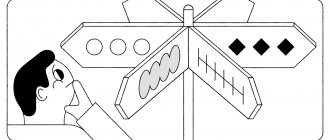Last Victory Day, an Omsk pensioner killed her roommate by stabbing him in the throat with a kitchen knife. Before this, the couple had not quarreled, at least the neighbors did not record disturbances in the calm. What’s even more interesting is that it turned out that this same old woman killed her previous partner with a knife seven years ago, also on Victory Day. Hence the question: could the deceased 72-year-old man have recognized a monster and murderer in his girlfriend in advance? Is it even possible to understand in advance that not everything is fine with a partner? What personality traits should you be wary of when choosing a life partner? And what to do if a dangerous partner is already nearby? Doctor of Medical Sciences, head of the department of forensic psychiatric prevention of the State Scientific Center for SSP named after V.P. told Lenta.ru about this, as well as about the chemistry of love and the right approach to creating a family. Serbian" Oksana Makushkina.
Violent and quiet
“There are a great many definitions of mental disorder,” Professor Oksana Anatolyevna Makushkina immediately dots the i’s. — But there is one definition of mental health. The starting point is a person’s ability to adapt to society. First of all, at work and in the family. In particular, do not create conflict situations, and also get out of them with minimal losses for yourself and others. The preservation of this possibility indicates a norm, if one can speak of a norm at all.
Of course, all normal people are different from each other - they have different temperament, character, level of intelligence... Apparently, everyone has heard about the four types of temperament: melancholic, phlegmatic, sanguine and choleric. Extreme types of characters, located on the border of the norm, are also well studied and are called accentuations.
In the qualifications of the famous Russian psychiatrist A.E. Lichko (1977) human characters are divided into 11 accentuations: hyperthymic (overactive), cycloid (activity is periodically replaced by depression), labile (with frequent mood swings at the slightest provocation), sensitive (shy and impressionable), astheno-neurotic (capricious, suspicious , irritable), schizoid (unable and unwilling to communicate with people), psychasthenic (prone to constant introspection, anxious), epileptoid (authoritarian, irritable, angry), hysterical (attention-seeking, demonstrative, self-centered), conformal (adapting to the situation) and unstable (lazy, susceptible to influence).
The starting point is a person’s ability to adapt to society...
Photo: Alastair Grant/AP
But, as Dr. Makushkina has already said, all normal people, no matter whether the accentuation in their character is bright or barely noticeable, epileptoid or psychasthenic, are able to control their words and actions, foresee the consequences of emerging situations and control them. If such a person breaks the law, he bears full responsibility for his words and actions.
Here are the 19 most significant signs of psychopaths:
- Psychopaths are not just attractive - they are charming. Especially at first glance. Sweet, intelligent and smart.
- The charm of psychopaths always helps them to catch people in their networks and force them to do what the psychopaths themselves need. Riding others is their favorite pastime. They know how to flatter like no one else.
- Psychopaths speak well. They can easily give out a real acting monologue, forcing those around them to listen to themselves with their mouths open. They most likely won’t let you get your word in.
- Psychopaths are never consistent in their lives. Frequent changes of places of work and study, love partners and even views. In the distant era before electronic books, you could easily find 10-20 books on a psychopath’s desk, which he started reading and abandoned everything at the very beginning.
Photo from the site st.kp.yandex.net - Psychopaths lie constantly. To everyone and for any reason. They lie to no avail and do not particularly try to hide it. The actions of psychopaths are often at odds with their words.
- They do not recognize any norms of behavior and moral laws, and often legal laws, considering them unnecessary, fictitious restrictions. They can steal, deceive, mock people and consider this to be completely natural behavior, to which they have every right.
- Psychopaths don't respect anyone. They always consider themselves superior to their surroundings. In a work team, a psychopath who is at the bottom of the administrative ladder can easily jump over the heads of all his bosses and go to resolve the issue directly with the head of the organization, sometimes literally bursting into the boss’s office to do this.
- Psychopaths become angry very easily and can be frightening. However, they also calm down easily. Switching between rage and calm can be almost instantaneous.
- In communication, a psychopath adheres to a condescending and contemptuous tone. He always does this when he doesn’t want to seem very nice, as he knows how to do. And even in relation to people older than him in age and position. Such condescending and contemptuous behavior of a psychopath, his ironic half-smile on his lips in response to all the objections of his opponent, often drives people to a state of white heat. If this happens, the psychopath patronizingly tells the opponent to calm down. Or, on the contrary, he falls into inadequate repentance: he begins to wring his hands, kneel down and ask for forgiveness.
- A psychopath blames others, most often people close to him, for his own shortcomings and misdeeds. At the same time, he is well aware when he is telling a lie. But very often, at the moment of an argument, he begins to blame his opponent for this same lie, driving him crazy. This is the goal of a psychopath - to deprive his interlocutor of peace of mind.
- Psychopaths are two-faced and multifaceted. They can change their masks every minute. Just now a psychopath played the role of an “evil policeman” in front of you and immediately turned into a “miserable child” who should be pitied. But as soon as you soften, he will immediately try to “bite” you again.
Photo from paidagogos.com - Psychopaths do not remember good, but always remember the evil done to them. And they not only remember, but also greatly exaggerate it. When communicating with a psychopath, you will always be aware of how terrible his parents, grandparents, acquaintances, partners, school teachers, kindergarten teachers and everyone else were. How they all did not accept him and treated him all his life.
- When communicating with a psychopath, you may get the impression that this person simply does not understand that he hurts people. You might even want to explain it to him. There's no need to rush. You can rest assured: a psychopath always knows that he is hurting, and he does it on purpose.
- Psychopaths never have long-term good relationships with anyone. They have no friends, they hardly communicate with relatives, their love partners run away from them.
- When driving, a psychopath often adheres to a dangerous driving style: speeding, cutting off, pressing. It gives him real pleasure to see other people's fear, especially if he is not alone in the car.
- Psychopaths love to make their romantic partners feel jealous. They can easily come on a date and bring with them a “friend” of the opposite sex. This behavior is demonstrated by both male and female psychopaths.
- Psychopaths sleep little. Usually no more than 4-5 hours a day. And almost all the time they are in a state of excitement and “business” activity.
- In their sexual life, psychopaths often have perverted needs and force their partners to satisfy them.
- Psychopaths have a reduced sense of danger. They often engage in extreme sports.
Two types of ill health
“If we talk about the problem of mental illness,” continues Oksana Makushkina, “the medical community adheres to the classification of diseases. Currently this is ICD-10 - International Qualification of Diseases, 10th revision. In accordance with it, mental disorders are divided into two large groups: severe, pronounced disorders, and less severe, so-called borderline ones.
The first group includes schizophrenia spectrum disorders, in which control over behavior may be largely lost. A sick person has a changed worldview and relationships with other people, and often there is also a pathological motivation for behavior. If such a person commits illegal actions, there is a high probability that he will be declared insane.
The second group includes personality disorders, or in the old terminology - psychopathy, as well as neurotic disorders. Personality disorders, or psychopathy, affect, according to various sources, from 4 to 15 percent of the world's population. Among the causes of occurrence: genetic predisposition, upbringing, consequences of stress and mental trauma, violence suffered, including sexual violence, head injuries.
Personality disorders differ from character accentuations in a greater degree of severity. That is, these are character traits, but greatly exaggerated. The line is quite thin, but accentuations are not as stable over time as psychopathy and do not lead to social maladjustment. On the other hand, what distinguishes personality disorders from schizophrenia is that they have virtually no dynamics throughout life, that is, they do not develop. People with personality disorders, if they commit a crime, are usually recognized as sane and are held responsible for their actions.
Living with a Psychopath
You can live with a psychopath. And you can even live happily. True, for this you need to be just like him, a psychopath. That is, to profess and adhere to the same principles in life as he does. If not, then your life with him will turn into an eternal hell, from which you can only get out by escaping from the “inadequate”. Don’t even hope to change it, since psychopathy is a state of personality and psyche, and therefore incurable. With modern methods and medications of psychotherapy, psychopathy can only be slightly corrected.
Photo from the site bm.img.com.ua
Show your radical
“A personality disorder is a pathological makeup that prevents a person from adapting, behaving adequately, and acting in such a way as to get out of different situations with minimal adverse consequences,” explains the professor. — Such people have a limited range of possibilities and solutions, unlike a normal person. However, they are able to foresee the consequences of their actions.
Without any prerequisites or symptoms...
Photo: Grigory Sysoev / RIA Novosti
The range, by the way, is limited only in conditions of crisis, or, as doctors say, decompensation. When, due to additional stress and failures, psychopathic personality traits appear so clearly that they become noticeable to others.
— A person with a personality disorder will always react to decompensation with his personal radicalism. The psychasthenic will go into depression, the schizoid will completely stop communicating with people, the hysterical will behave demonstratively and start breaking plates. If we consider decompensation from the perspective of possible harm to others, then we should pay attention to personality disorders associated with increased aggression. These are dissocial personalities (sociopaths), unstable and emotionally labile individuals - too excitable and hot-tempered. Decompensation in such people leads to aggression, unreasonable conflicts and even harm to others.
How to recognize such a person? It’s by these signs that you can recognize it. Yes, they have a reduced ability to adapt, and, yes, they are difficult in everyday life. But in the absence of psychotraumatic factors, in comfortable conditions, such people can be in a compensated state for a long time, that is, live and work normally, be in excellent relationships with loved ones and work colleagues.
Phase 3: Complicity in the Psychopath's Game
Once the psychopathic connection is established, you will find that your partner uses your vulnerabilities to gain your submission and strengthen the relationship. Surprisingly, this kind of “tug of war” often strengthens, rather than weakens, such a connection. This is especially true when you, against your will and against your own interests, do what is asked of you in order to maintain a strong connection.
A healthy relationship is harmonious: each participant gives something and receives something. A psychopathic relationship is usually one-sided: you give, and he only receives (money, housing, sex, power, control).
Often friends, relatives and colleagues, seeing what is happening, try to warn you, but you refuse to listen to them. You choose to ignore phrases like “He’s not right for you,” “It’s better to end this relationship,” or “I wouldn’t trust him,” and you may even lash out at your family and friends. Such alienation is only to the advantage of a psychopath, because, having lost support, you will be completely in his power.
If you find yourself in the network of a boss, co-worker or emotional tyrant, try to find external confirmation of your feelings. If you see that your relationship with this person is causing you harm, it's time to end it.
In many cases, family members, friends and co-workers can help you and provide psychological support during the transition. Additionally, if you have been assaulted, you will need the advice and assistance of law enforcement and qualified professionals.
Fell, woke up...
Borderline disorders are not always an inherent personality trait. They can appear after suffering exogenous hazards: head injuries, neuroinfections (encephalitis, meningitis), intoxication, including alcohol surrogates, which adversely affect the brain. But most often these are injuries.
A person has an accident, gets hit on the head, a year and a half passes, and suddenly the one who was previously calm and balanced becomes hot-tempered, irritable, picky, and does not tolerate alcohol well. As a rule, such people react to changes in weather - their mood changes, irritability increases.
- What should be done in this case? - Professor Makushkina continues to explain. — If an injury or severe infection occurs, you need to get help from a neurologist: nootropics, vascular drugs that improve the functioning of the brain, must be used in courses and not just once, but for a long time. The reversibility of symptoms depends on the severity of the injury, the person’s ability to recover, age and treatment. In any case, this disorder will not go away on its own.
Professor Oksana Makushkina
Photo: Pavel Orlov / Lenta.ru
Phase 5: Escalation
If the victims of a psychopath suddenly begin to ask questions about the discrepancy between his behavior and his words, they face “punishment.” At first, the psychopath categorically denies any inappropriate actions on his part and tries to go on the attack.
Usually a person becomes ashamed of his suspicions, and as a result he begins to doubt himself even more. If victims persist in expressing concern and suspicion, they are bound to fall under the hot hand of an angry psychopath.
Violence comes in many forms, the most common being psychological, emotional and physical. You can notice physical abuse (the most obvious) by bruises, contusions, cuts and similar signs. Often victims do not report physical aggression towards themselves, as is the case with domestic violence.
Family members, astute friends, or co-workers who notice his traces may try to intervene, but as a rule they are forced to remain aloof as the victim refuses their help.
Physical violence is dangerous because psychopaths, like other rapists, only get the hang of it over time. Be sure to ask for help!
Emotional and psychological abuse is much more difficult for an outsider to notice, although its consequences are devastating for the victim. It often manifests as anxiety, distress, depression, inability to sleep and generalized fear and post-traumatic stress disorder (PTSD).
Psychological violence leads to decreased self-esteem, a feeling of insignificance, self-doubt and mental anguish. People exposed to it lose their sense of self. They believe that something is wrong with them.
In many cases, they tend to blame themselves for the violence committed against them. "What did I do wrong?" - they ask themselves. Because our thoughts and feelings influence our behavior, victims of abuse perform poorly at work; They are easily distracted, easily irritated, and become taciturn or overly emotional.
Psychopaths use psychological abuse to keep victims under control. Criticism (“You’re so fat! No one will love you but me!”), threats (“I won’t stand for this anymore! I’m leaving!”), and intimidation (“Don’t make me hurt you!”) are common tactics. in their arsenal, and, surprisingly, such a “struggle” only strengthens the psychopathic connection.
If you have been abused, immediately seek advice and help from others (friends, family members or trusted colleagues) or, depending on what happened to you, from law enforcement or social services.
Transmitter in a toothbrush
— If we are talking about severe mental disorders, then we must understand that a schizophrenia spectrum illness can debut at 30 and 40 years of age. Without any prerequisites or symptoms. An acute condition develops in a person who has not had any illness before. Suddenly he begins to behave unusually, listens to something, brushes off someone, talks to a non-existent interlocutor. He believes that he is being watched, his neighbor wants to harm him, influences him, controls his thoughts. At the same time, it is impossible to dissuade the patient (this is what characterizes delusional ideas - they arise without a real reason and cannot be corrected from the outside). He declares that he is being hunted by some service that has implanted transmitters everywhere, even in his toothbrush. Delirium can also spread to loved ones. The husband or wife turns into “secret service agents.” In some cases, a person completely withdraws into himself, and the visible symptoms remain unusual behavior, complete isolation, and wariness. The motives for the actions and the actions of the patient themselves do not correlate in any way with reality. With such diseases, we are not talking about trauma or stress.
The biggest mistake relatives make in such a situation is to let it take its course. They say he must pull himself together and show willpower. Such problems do not solve themselves. Moreover, there is a high risk that the patient will commit socially dangerous actions and cause harm to himself or others.
In such cases, immediate professional help is needed, and the sooner the better. Because the sooner the acute condition is stopped, the more favorable the prognosis and the fewer consequences for mental activity.
- How is it happening? - the professor gets upset. “Often people, even knowing that their relatives have mental disorders, knowing that they were seen by a psychiatrist, do nothing to ensure that this person continues to go to the doctor and receive supportive therapy, which in most cases evens out aggressive tendencies. In a sense, they are digging their own hole.
Phase 2: Forming a Psychopathic Bond
Subtle charm and skillful manipulation can convince you that a psychopath likes you. During long conversations or meetings, he will try to convince you that he shares your beliefs, passions and views. As a rule, this happens unnoticed; in fact, psychopathic manipulation can be so subtle that you will come to the conclusion that your views are similar simply by listening to the psychopath talk about his life.
Of course, all the stories it tells are carefully thought out and tailored to your hot buttons. In almost all the cases we analyzed, what all victims of psychopaths had in common was the desire to find a kindred spirit, a person who shared their values, beliefs and life experiences.
You may feel pleasantly excited, believing that the psychopath actually has sympathy and respect for you. Additionally, you will begin to believe that your relationship with him, personal or professional, will progress.
Many people reported to us that at this stage they shared personal information with the psychopath, believing that his story was truthful and deeply personal. They had no idea that they were being lied to and that most of what they heard was just fiction.
Over time, the psychopath will make you believe that you two are special, unique and destined to be together. These insidious people try to present themselves as ideal friends, employees or business partners. This can require a lot of time and effort from them, and they usually do this in secret. The psychopath's affection, unfortunately for you, is feigned and exists only in your imagination.
Paying attention to the formation of attachment is an excellent preventive measure. Be careful and don't rush to believe anyone's words. Building a meaningful relationship takes time, as well as common sense and careful judgment. If you feel that a person is too good to be true, try to prove to yourself otherwise.
A psychiatrist is not a sentence
“Lenta.ru:” Oksana Anatolyevna, but you understand that going to a psychoneurological dispensary is a stigma for a Russian person. If people find out about visits to a psychiatrist, a person will hardly be able to avoid teasing and ridicule. His friends will begin to feel sorry for his wife, and she herself will periodically call her husband a moron. Not to mention the problems with obtaining a driver's license, hunting license, and finding employment.
“First of all, I tell you with full responsibility,” here Dr. Makushkina is on her territory, “that seeking advice from a psychiatrist does not at all mean registration. In accordance with the Law “On Psychiatric Care” there is consultative and therapeutic assistance and dispensary observation. The first is carried out as a person applies, and no one will register him. The law stipulates that only persons suffering from a chronic and protracted mental disorder with severe, persistent or frequently exacerbating painful manifestations are subject to dispensary observation. There are clear indications. Moreover, a person cannot be taken under dispensary observation by the attending physician, but only by a commission of psychiatrists. Restrictions on obtaining a driver's license and the right to own a gun are associated exclusively with severe mental disorders such as schizophrenia. So don’t think that if you go to a psychiatrist, you won’t be given a license later.
Secondly, after its debut, a severe mental disorder most often has a chronic course. If a person stops maintenance therapy, their condition will worsen. As soon as relatives notice a resumption of the disease, they need to contact a psychiatrist. The main thing is to understand: severe mental disorders do not go away on their own.
Thirdly, you are talking about a driver’s license and a hunting license... You know, there are cases when people with severe mental disorders, having a gun, use it. Are you sure such people need guns and cars?
FSBI "SSC SSP named after V.P. Serbian"
Photo: Grigory Sysoev / RIA Novosti
Phase 7: Overcoming Shame
Shame is a natural reaction to abuse and is the reason why many cases of abuse go unreported. However, it is extremely important to discuss it if you have experienced this feeling with family members, friends or professionals. It is necessary to seek help, firstly, because you do not deserve shame, just as you did not deserve violence.
It's not your fault: the psychopath is a social predator, and you became his victim.
Secondly, the very feeling of shame makes you an easy target for further manipulation. Think of abused wives who, despite beatings and verbal abuse, beg abusive spouses to return to the family or find new abusive partners. Moreover, a psychopath will be able to turn your sense of shame against you just as easily as he played on your shortcomings, needs and fears from the very beginning.
Don't let the shame of being fooled stop you from seeking help and advice; Don't put this weapon in the hands of a psychopath.
Depressed parents
“My mother seems to be a kind and sincere person, but she sees her whole life in a black light. As a result, 90% of our conversations boil down to her whining about the terrible weather, terrible health, terrible news on TV and how she suffers from the fact that we see each other so rarely. But how can I communicate more often if, after an hour of talking with her, I become so depressed that I might as well drown myself?”
Depressive disorders are also a very common occurrence both among the young and apparently prosperous, and among the old and sick. Of course, difficult living conditions, serious illnesses (for example, oncology), and the loss of loved ones increase the likelihood of their development.
It is important to distinguish between chronic depression (depressive disorder) and that caused by certain sad events (reactive depression). In the second case, the person will eventually return to normal, but in the first, episodes of melancholy and melancholy will accompany him throughout his life.
Depressed parents aren't all doom and gloom. They are cold and distant, which is especially unbearable for children. Often they are passive, helpless and dependent; they constantly need to be rescued because they have difficulty coping with ordinary tasks. Sometimes they are irritable and suspicious.
Depressed people often talk about illness and imminent death, even if the person is only 40, they may have a specific “cemetery” humor.
Depression differs from the “ordinary blues” in that a person remains in it for a long time (months, sometimes even years), and a pessimistic outlook spreads to everything around.
If parents become sick and unhappy only when they need something from you, most likely they are manipulators (which also does not guarantee their health, see “Psychopathic Parents”).
Depressed people cannot believe that things will change for the better, which can make it very difficult to motivate them to get treatment. Some people suppress depression with alcohol, which is especially typical for men. Depression is often accompanied by anxiety. In addition, it can manifest itself at the level of physical sensations: inexplicable pain in the heart, in the abdomen, a feeling of weakness, heaviness.
How to help depressed parents. In many cases, antidepressants can work wonders: the eternal “whiner” turns into a completely cheerful person who suddenly has interests and plans for the future. In addition to a certain amount of pills, depressed people need a lot of support - both moral and in practical matters.
It is important to understand that love and understanding alone cannot cure them. Such people have a black hole in their soul that cannot be plugged, no matter how hard you try.
How to help yourself. To maintain your own sanity, you will have to dose out the support provided. Decide how many hours of complaints per week you are willing to endure without fatal damage and how many practical requests to fulfill (their flow will never dry up). Recognize that you are doing this for yourself, and not for the sake of winning your mother’s love: until depression is cured, the flow of complaints about life, as well as about your callousness and inattention, will not stop.
Life has stopped
And then everything is complete indifference. Sold the car, broke up with the girlfriend. I quit the gym. When I asked what was wrong, he kept repeating one thing: “I feel bad. Leave me alone!”
It was very painful to watch all this. I didn’t understand and still don’t understand how this could happen. He doesn't even want to hear about work. Declares that he cannot be among people. She persuaded us to go to a psychologist, who immediately sent us to a psychiatrist. For a year and a half, Dima attended private psychotherapy sessions. Expensive, of course - we paid 20 dollars for one visit. But it did not help. It's a waste of time and money.










